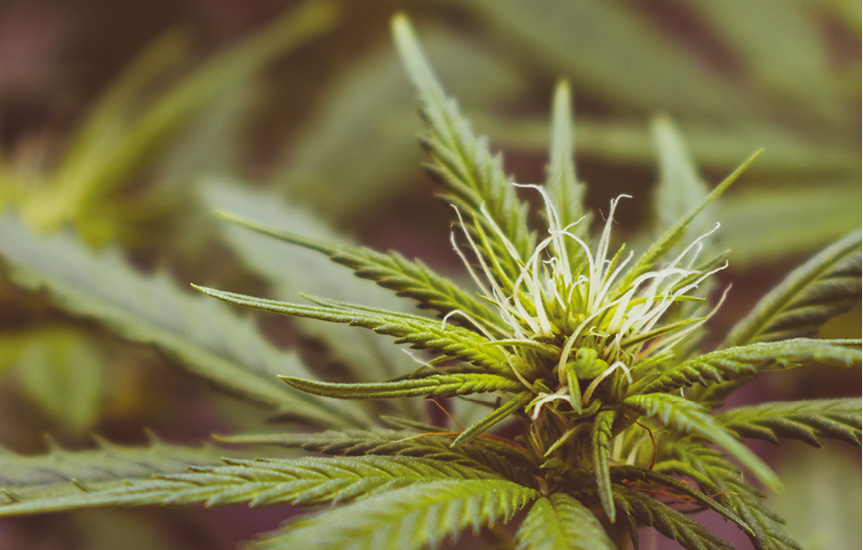
By: Dr. Pepper Hernandez
Wouldn’t it be wonderful if cannabis’ healing properties can reverse aging? A recent study is leading us to investigate just that. The results are adding to a promising list of findings that should continue to encourage cannabis research.
According to new research published in the scientific journal Nature Medicine, a team of researchers gave mice low doses of THC at three different life stages: two months, 12 months (mature) and 18 months (old age). These scientists believe that the THC stimulates the Endocannabinoid System (ECS), a biochemical pathway throughout the central and peripheral nervous system that becomes less active with age. The study builds from a theory that the brain’s ECS is related to cognitive aging and decline. The older we get, the more the activity in this system slows down, and our brains gradually produce fewer naturally occurring endocannabinoids. The consequences of this slowdown aren’t entirely understood, but there’s enough evidence from animal models to suggest that it’s tied to memory loss and decreased learning ability.
According to The University of Bonn’s Professor Andreas Zimmer, one of the study’s authors, “With increasing age, the quantity of the cannabinoids naturally formed in the brain reduces.” Zimmer continued, “When the activity of the cannabinoid system declines, we find rapid aging in the brain.”
According to lead author Andras Bilkei-Gorzo, also of the University of Bonn, “If we can rejuvenate the brain so that everybody gets five-to-ten more years without needing extra care, then that is more than we could have imagined.”
So, what actually causes the body to age? Have you ever heard of telomeres? Their relatively recent discovery has completely changed the way researchers study longevity and the process of aging. In fact, the researchers who discovered telomeres won the Nobel Prize in Physiology or Medicine in 2009.
Telomeres are compound structures at the ends of chromosomes. In the nucleus of each of the billions of cells that compose our bodies, chromosomes make up DNA. At the end of every chromosome, you can find telomeres. They get progressively shorter with time, and their length can be linked to age. Researchers have found that older people have shorter telomeres.
Each time a cell divides, the DNA unwraps, and the information within is copied. Because of how cells divide, that very last bit of a chromosome, the telomere, cannot be completely copied. It is thought that, as a cell divides, the telomeres become shorter and shorter each time until they are gone. This would cause aging in individuals because cells simply age and can no longer replicate. Most cells can replicate approximately 50 times before the telomeres become too short. Some researchers believe that telomeres are the secret to longevity and that there are circumstances under which telomeres will not shorten.
Telomeres play a central role in cell fate and aging by adjusting the cellular response to stress and growth stimulation on the basis of previous cell divisions and DNA damage. At least a few hundred nucleotides of telomere repeats must “cap” each chromosome end to avoid activation of DNA repair pathways. The chance of the latter increases as the average telomere length decreases. The average telomere length is set and maintained in cells of the germline, which typically express high levels of the ribonucleoprotein telomerase.
Currently, there is limited research on the effects of cannabis on the brain and aging when it comes to telomeres, but it is only a matter of time before scientists are able to shed more light on the process.
Scientists at the University of Bonn teamed up with academicians at the Hebrew University of Jerusalem to determine the impact of cannabis on the brain’s aging process. The researchers determined that cannabis reverses the aging processes within the brains of mice.
As it turns out, there may well be a bright future for all of us who are aging!
We are living in a brilliant time, and having all the research on cannabis coming to the forefront is even more amazing.
*For ways to enjoy your cannabis, check out Hemper.
For more info on Dr. Hernandez, naturopath, nutritionist, cannabis therapy consultant and holistic health practitioner, check out DrPepperHernandez.com.
All information in this article is for educational purposes only. Please check with your primary care physician, raw food nutritionist or holistic care provider before beginning any new diet or lifestyle change.



I’m 50 yrs of age I’m a graduate educational studies and very interested i very much interested in researching about longevity in humans. I regularly use myself for experimentation through herbal and other scientific techniques I acquired from researched findings. Right now I’m using cbd, alpha lipoic and juice plus but focused on separating treatment to observe my findings